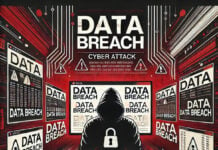
As technology evolves, so does the landscape of cybersecurity and ethical hacking. By 2025, certain programming languages will continue to stand out for their utility in hacking and security analysis. Here’s a look at some of the best programming languages that aspiring hackers and cybersecurity professionals should consider mastering.
1. Python– Python remains a dominant language in the hacking community due to its simplicity and versatility. Its extensive libraries, such as Scapy for packet manipulation, Beautiful Soup for web scraping, and Requests for handling HTTP requests, make it an excellent choice for developing scripts and automation tools. Python’s readability allows hackers to quickly prototype and test their ideas, making it a staple in both ethical hacking and cybersecurity.
2. JavaScript- With the rise of web applications and services, JavaScript has become increasingly important for hackers focusing on web vulnerabilities. Proficiency in JavaScript enables hackers to understand and exploit client-side vulnerabilities, such as Cross-Site Scripting (XSS) and other web-based attacks. Additionally, knowledge of Node.js can facilitate server-side exploitation, making JavaScript an essential language in the hacker’s toolkit.
3. C/C++C and C++ provide low-level access to memory and system processes, which is crucial for developing exploits and understanding system vulnerabilities. These languages are often used in writing malware, as they allow for direct manipulation of hardware and system resources. Familiarity with C/C++ is particularly valuable for those looking to delve into areas such as reverse engineering or creating custom exploits.
4. Ruby- Ruby, especially with the Metasploit Framework, is highly regarded in the hacking community. Metasploit is a powerful tool used for penetration testing and developing security research. Ruby’s concise syntax and robust libraries make it suitable for rapid development of security tools and exploits. As penetration testing continues to grow in importance, Ruby’s relevance in hacking remains strong.
5. Go- Go (or Golang) is gaining traction among hackers for its efficiency and performance, particularly in developing network tools and applications. Its concurrency model allows for the creation of high-performance applications, making it suitable for tasks like network scanning and traffic analysis. As the need for fast, efficient code increases, Go is likely to become more prominent in the hacking community.
6. SQL- While not a traditional programming language in the same sense as others on this list, SQL (Structured Query Language) is essential for understanding database vulnerabilities. Knowledge of SQL is crucial for performing SQL injection attacks, one of the most common methods used to exploit databases. As data breaches continue to rise, SQL will remain a key skill for hackers focusing on database security.
7. Bash/Shell Scripting- Bash and shell scripting are invaluable for automating tasks and managing systems in a Linux environment. Many hacking tools are built using shell scripts, and understanding how to manipulate these scripts is crucial for any hacker. Proficiency in Bash allows for efficient system exploitation and is essential for working in environments commonly used for penetration testing.
Conclusion
As we move into 2025, the programming languages listed above will play pivotal roles in the world of hacking and cybersecurity. Mastering these languages not only enhances a hacker’s toolkit but also contributes to a deeper understanding of system vulnerabilities and security practices. Whether you’re a budding ethical hacker or an experienced security professional, staying abreast of these languages will be vital for success in an ever-evolving digital landscape.






















